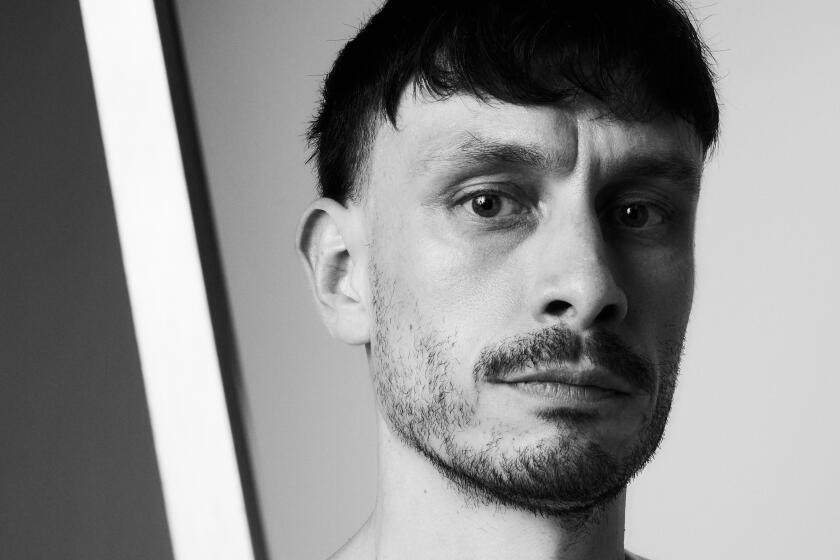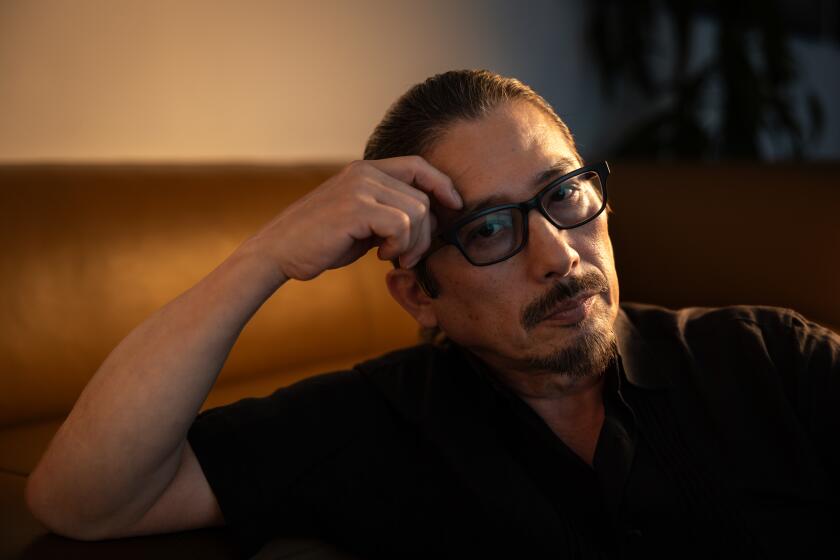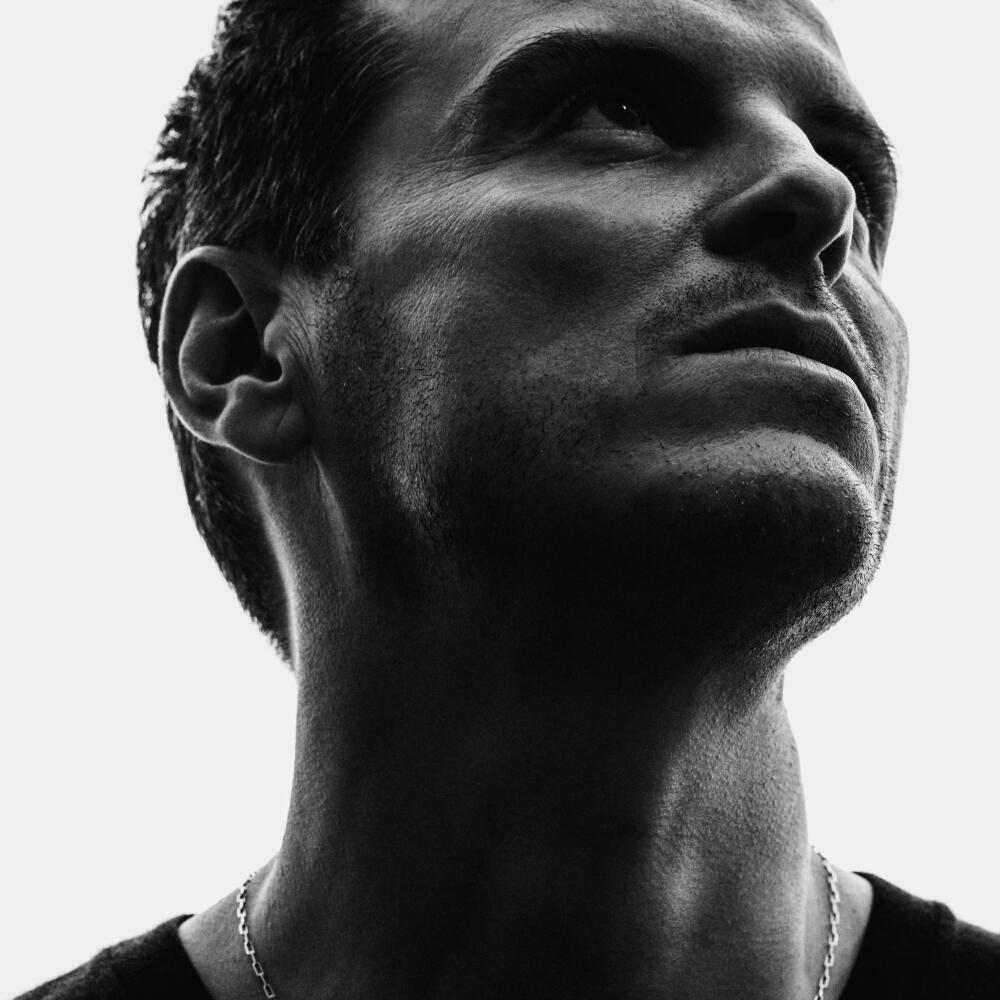
- Share via
“So you gonna go have another beer in this beautiful light? Let’s see what the light looks like.”
Andrew Scott moves over to the window. It’s early evening. Early summer. We’ve been talking for more than an hour at Sunset Studios, where Netflix has set up an Emmys FYC space. To be clear, Scott hasn’t been drinking. Maybe later. He’s going to be participating in a panel for “Ripley,” the streamer’s acclaimed adaptation of Patricia Highsmith’s crime novel “The Talented Mr. Ripley” in which he plays the striving, cunning psychopath of the title. Me? I’m availing myself of the bar that’s already open.
The Dublin-born actor has visited Los Angeles eight times already this year, and while he loves hiking the canyons and swimming in the Pacific, the thing about the city that he finds extraordinary is the quality of light this time of day, the last hour before the sun sets over the ocean or, in the direction we’re looking right now, the Hollywood Hills.
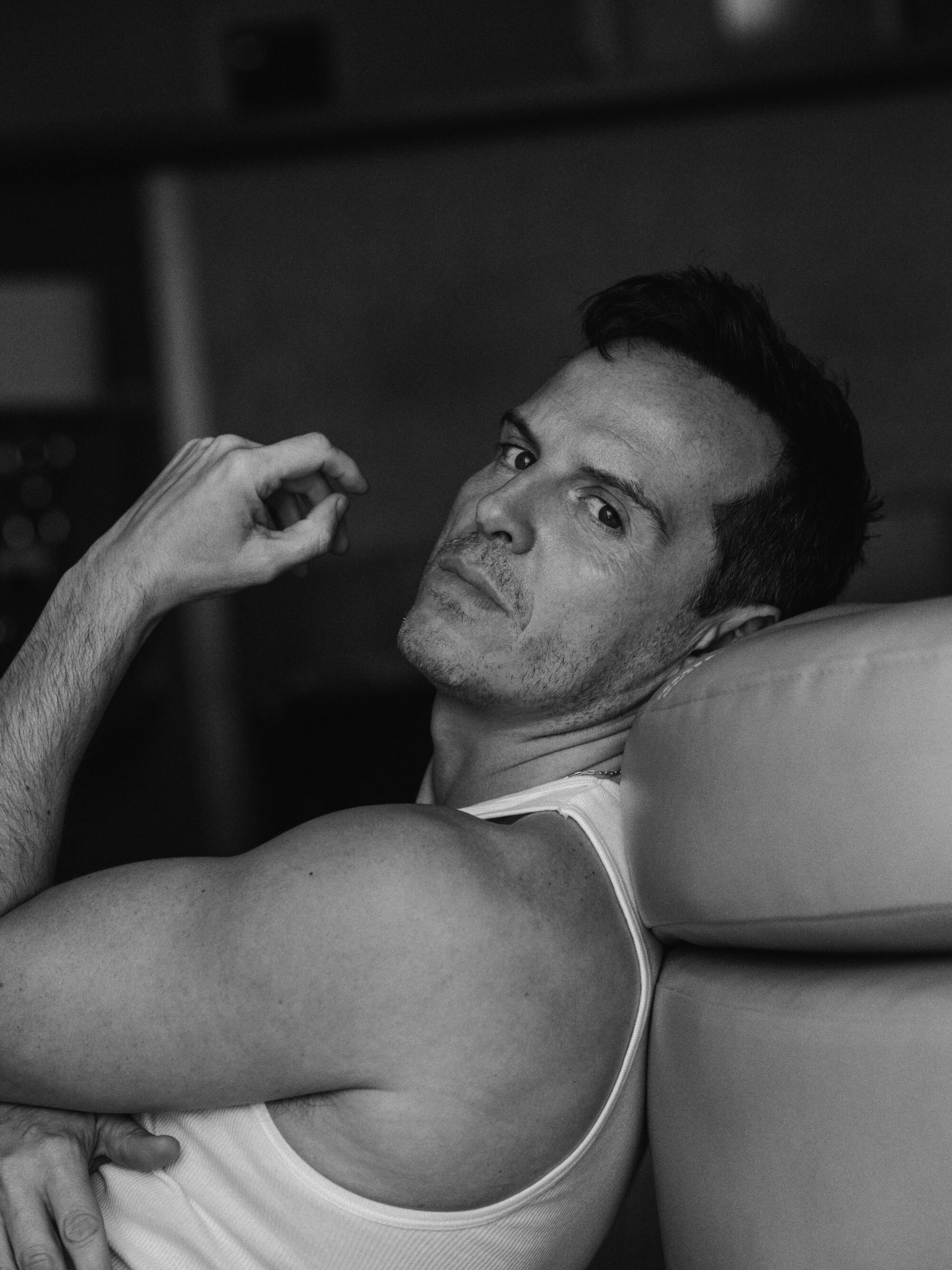
“When you go for a walk when the day is over in L.A., there’s nothing like it,” Scott says. “And I know people don’t walk a lot here and people definitely think I’m ...” He pauses, searching for the right word. “Like, almost mad. But I walk a lot here. I like a good walk. You need nature. You just need it.”
There’s one other thing Scott needs right now. Maybe needs is a bit strong. But as he made the rounds promoting his Emmy-nominated lead actor turn in “Ripley,” Scott took every opportunity to plead his case that he has been taken far too seriously for far too long as an actor (not that he’s complaining) and what he’d really like to do is — cue the fanfare — star in a musical.
The Netflix limited series based on the comic’s life burst on the scene and changed its creator’s world. He’s now shifted his focus to loftier topics.
“Yeah, I have been,” Scott says, chuckling when I note all the lobbying he’s been doing. “What can I say? When I was a kid, I loved watching musicals on TV and singing. I just think it’s joy. And I feel like I have good access to joy in my life.”
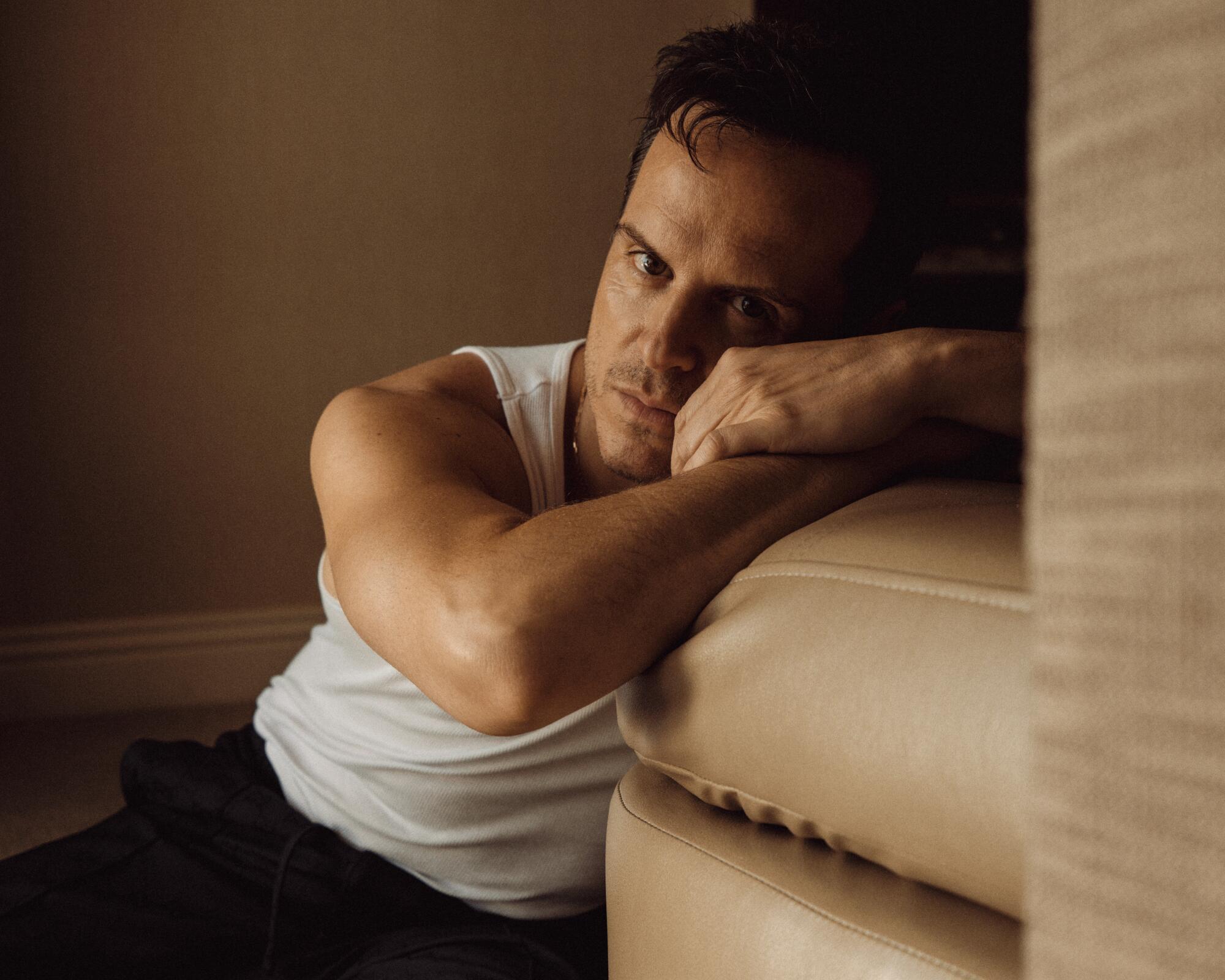
If you saw the video of Scott at one of Taylor Swift’s eight London shows in June, wearing a sleeveless black T-shirt and dancing with his “Fleabag” co-star Phoebe Waller-Bridge to “Shake It Off,” you know this to be true.
“I’m trying to put that energy out there,” Scott says. “You saw it. Why won’t anyone else see that?” He stops, laughing uproariously. “But I do love romantic comedy. I really think that a good one is absolutely joyful. And I love laughing and having a good time.”
Scott has shown glimpses of that throughout a career that has seen him play a villain gleefully embracing anarchic chaos (Moriarty on “Sherlock”), a boyishly seductive priest whose heart belongs to God (“Fleabag”) and a lonely writer beginning a passionate affair with a neighbor just as he’s reconnecting with his mom and dad — parents who died in a car crash when he was 11 (“All of Us Strangers”). He has also played Hamlet on the London stage and, last year, all eight characters in a one-man adaptation of Chekhov’s “Uncle Vanya.”
So if he wants to do a musical, who’s to doubt him? Scott just likes to, as he puts it, “change the dynamic,” constantly shuttling between moods and media, which probably means he won’t be playing Ripley again, even though the series’ finale sets up the possibility of further adventures in a most delicious way.
“The ending is beautiful,” Scott says. But in a “leave them wanting more” way? “Yeah, that’s the thing.”
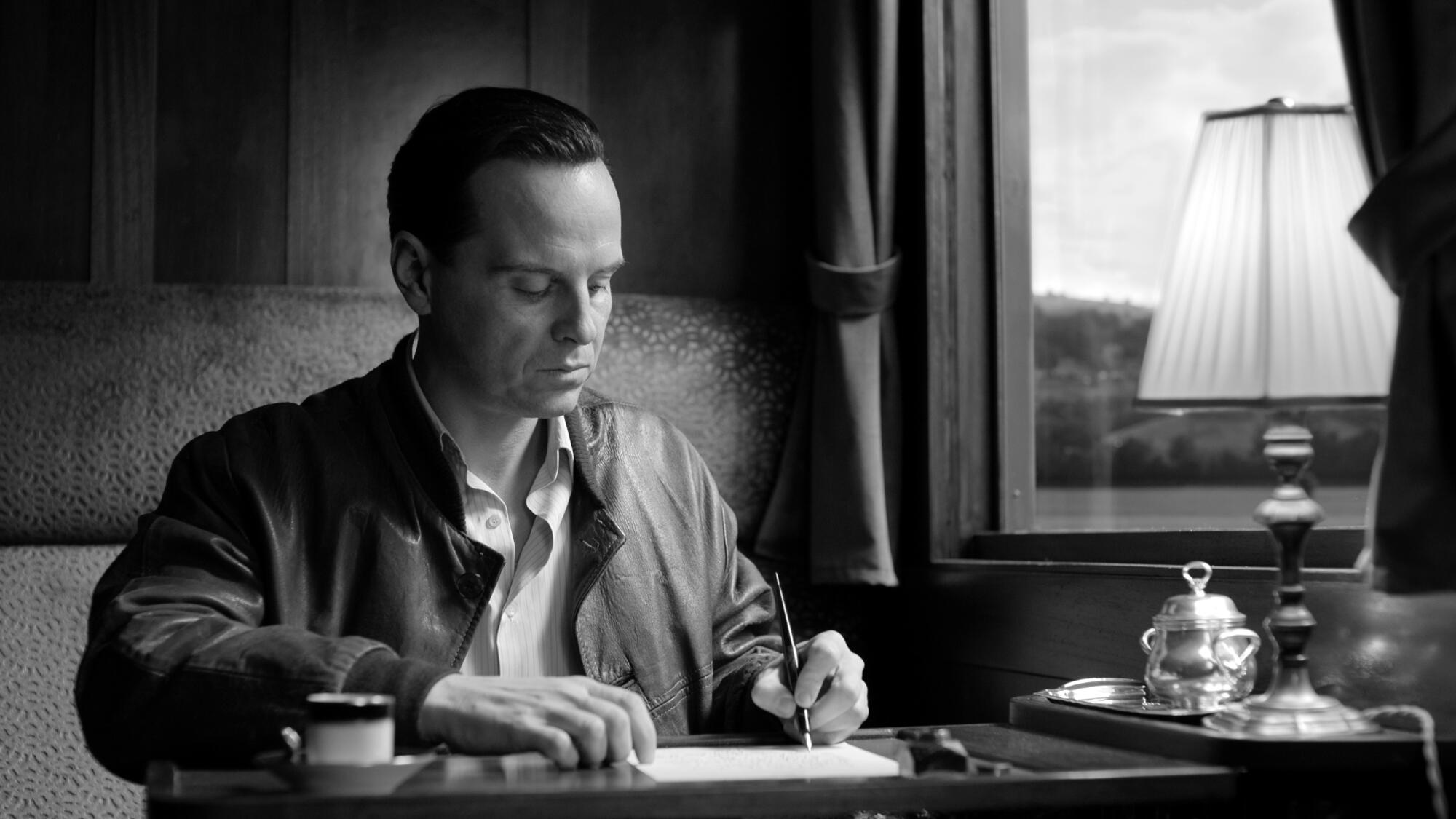
“The reason Ripley is so enduring is that Patricia Highsmith allows you to imagine what it’s like to be Tom Ripley, a murderer, rather than inviting you to imagine what it’s like to be a victim of Tom Ripley,” Scott says. “When you put someone like that as the protagonist rather than the antagonist, that’s interesting because that side of us exists. I’m not saying we’re all murderers. But it’s human to have that darkness within us. And it’s not healthy to deny that side of ourselves.”
The actor-producer was keenly aware of telling the story through a Japanese lens, unlike the 1980s miniseries. It’s a good start, he says, toward introducing his culture to the world.
He grins, mischievously: “Or, to put it another way: It’s better to pretend to hit someone over the head with an oar than it is to actually do it.”
We talk about “All of Us Strangers,” how I sat next to writer-director Andrew Haigh at a Telluride Film Festival screening the night after I saw his film and asked, “Is anyone alive at the end of your movie?” Because you can make a case that the film’s near-empty apartment building serves as a stand-in for purgatory.
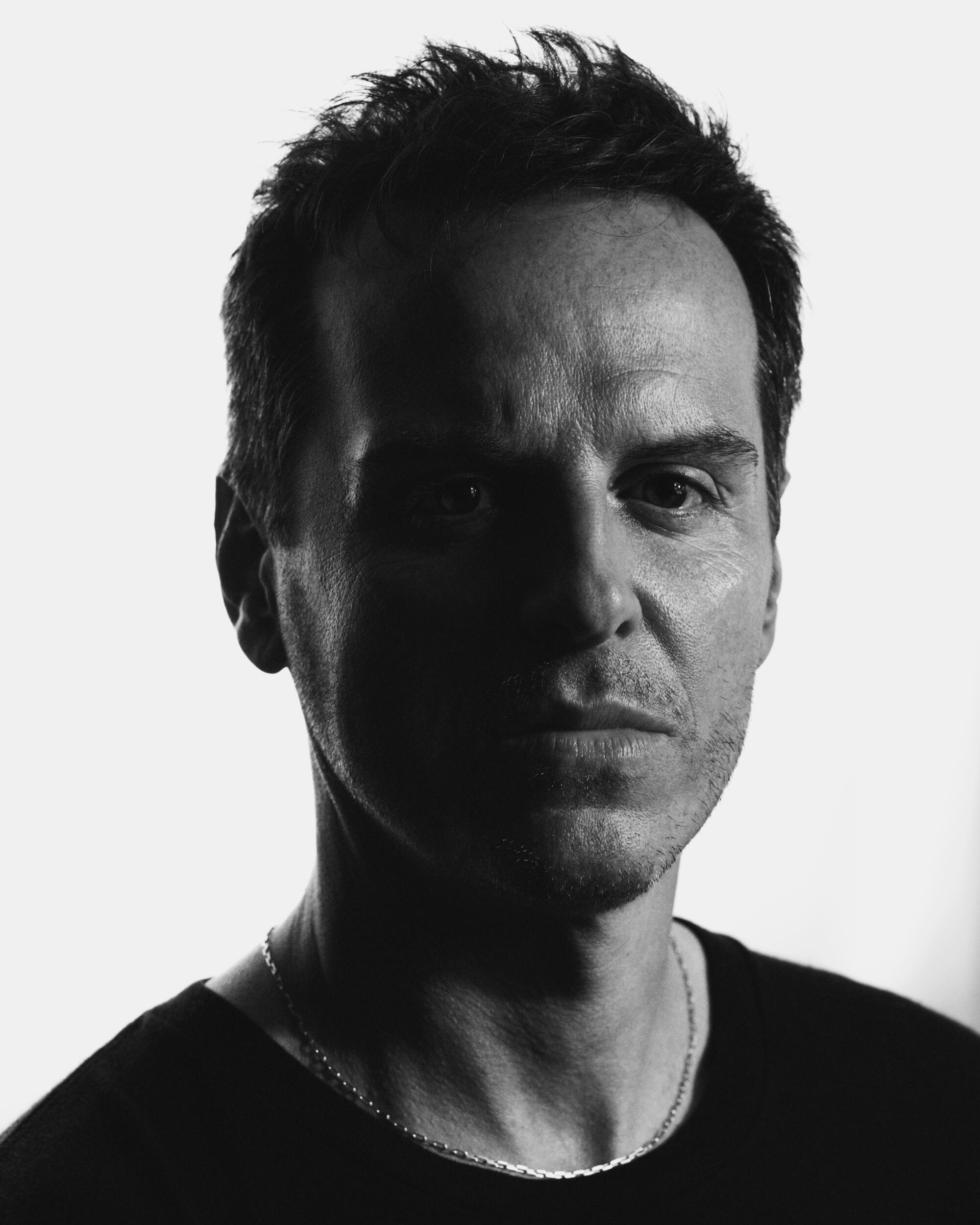
“That’s not how I saw it, but I’m always fascinated by the superiority of the audience’s interpretation of things,” Scott says. “I remember all the suggestions about what the fox motif in ‘Fleabag’ was supposed to represent. The Angel of Death? Wow! Really? But I love that a piece of creativity can give birth to so many other forms of creativity.”
Discussing “All of Us Strangers,” a movie that Haigh says is about the ways grief and loss encompass so much of our day-to-day existence, feels raw for both of us at this moment. Scott lost his mother, Nora, in March after a sudden illness; I have a dear friend about to enter hospice. He asks me about my late mother — Scott possesses a curiosity born from a need to understand things and make sense of them — and how I process grief today, nearly a quarter-century after her passing.
“It’s interesting that we don’t talk about death as a society because we think it’s morbid,” Scott says. “Maybe I’m just interested in it at the moment. I find myself asking about other people’s experiences. Perhaps I wasn’t as curious before because it wasn’t a need before. And I see that now, and I think talking about it increases your compassion.”
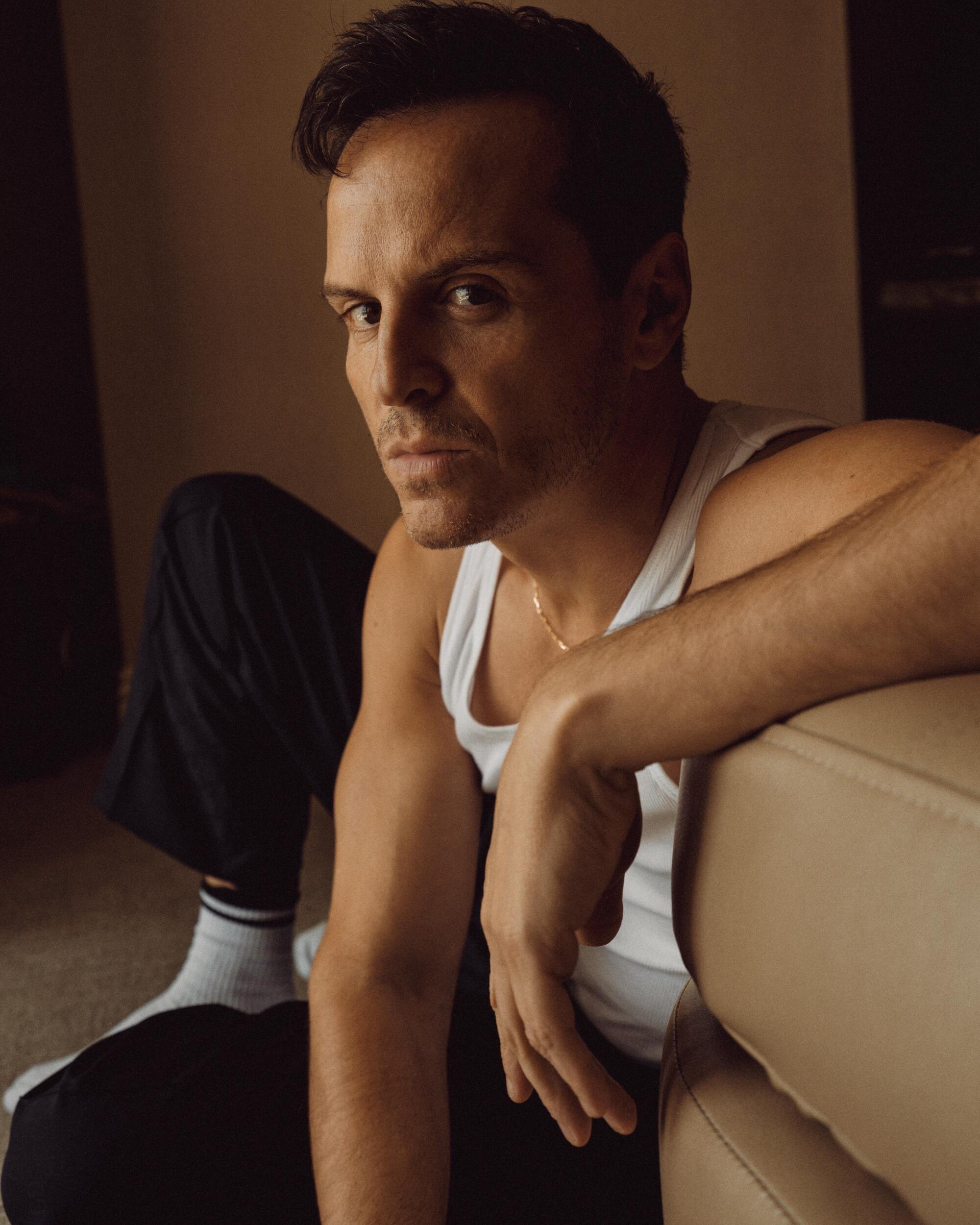
“Do you believe in coincidences?” I ask. “Many of your projects, particularly ‘All of Us Strangers,’ but also ‘Hamlet’ and ‘Vanya,’ had you playing characters dealing with grief.”
“It hasn’t escaped me,” Scott says. “When I was making those things, I was experimenting imaginatively with my own life. ‘What would it be like if I suffered great grief?’ ‘What would it be like to lose my parents?’ And now I have lost my mother. Does that make that experience any less authentic? No. In fact, it has helped me.
“One of the great comforts I have is that the last movie my mother saw was [the filmed version of] ‘Vanya’ because I know that she saw me and she knows the depth of my love for her because I channeled it in that role,” Scott continues. “Her last ever voice message to me was her reaction to that play, and it’s incredible to have that.”
Nora’s influence on her son’s life was enormous. She introduced Scott to acting as well as art; drawing and painting have remained passions throughout his life. “She left me a huge fortune, an emotional fortune,” he says. And now she has gone to what he, like Hamlet, calls the “undiscovered country from which no traveler returns.”
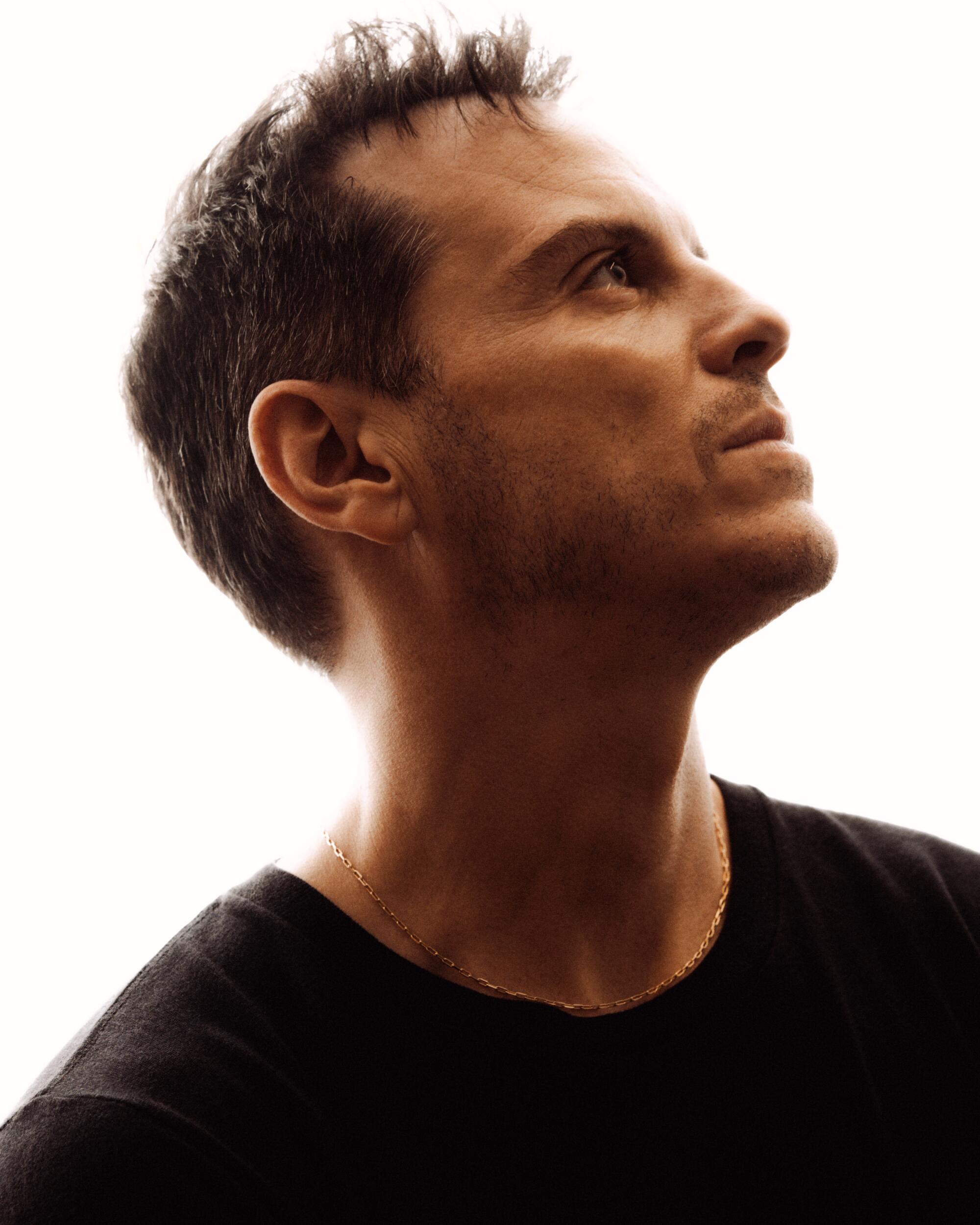
What do you imagine that country to be like?
“I’m trying to read a lot about it at the moment, and the idea of faith, the idea of holding onto something,” Scott says, telling me he’s making his way through C.S. Lewis’ “A Grief Observed,” a collection of essays on bereavement, doubt and faith he wrote after the death of his wife, Joy Davidman.
“You know, if you believe in something and it turns out not to be true, then, well, OK. But then if you believe in something and it turns out to be true, then, brilliant. Why not have faith in something? And it has emerged that I do have faith in something. I definitely believe in things that cannot be seen or felt. Do you know what I’m saying?”
Sure, I reply. There’s that verse in the New Testament. “Faith is the assurance of things hoped for, the conviction of things not seen.” Scott grew up Catholic. He recites the verse along with me.
“I think it’s so moving to have faith,” Scott says. “Like the idea of love. How do you define it? Like if somebody said, ‘Show me the proof of love.’ Because the person, what, bought you a car? Because you spent 40 years with them? Neither of those things are proof of love. Love is something that you just feel and sense and it’s a spiritual thing. An awful lot of us still have faith in love, even though that can’t be seen. I believe in love. I really do. I have no degree of shame or embarrassment or self-consciousness that I believe, to my core, in the power of love.”
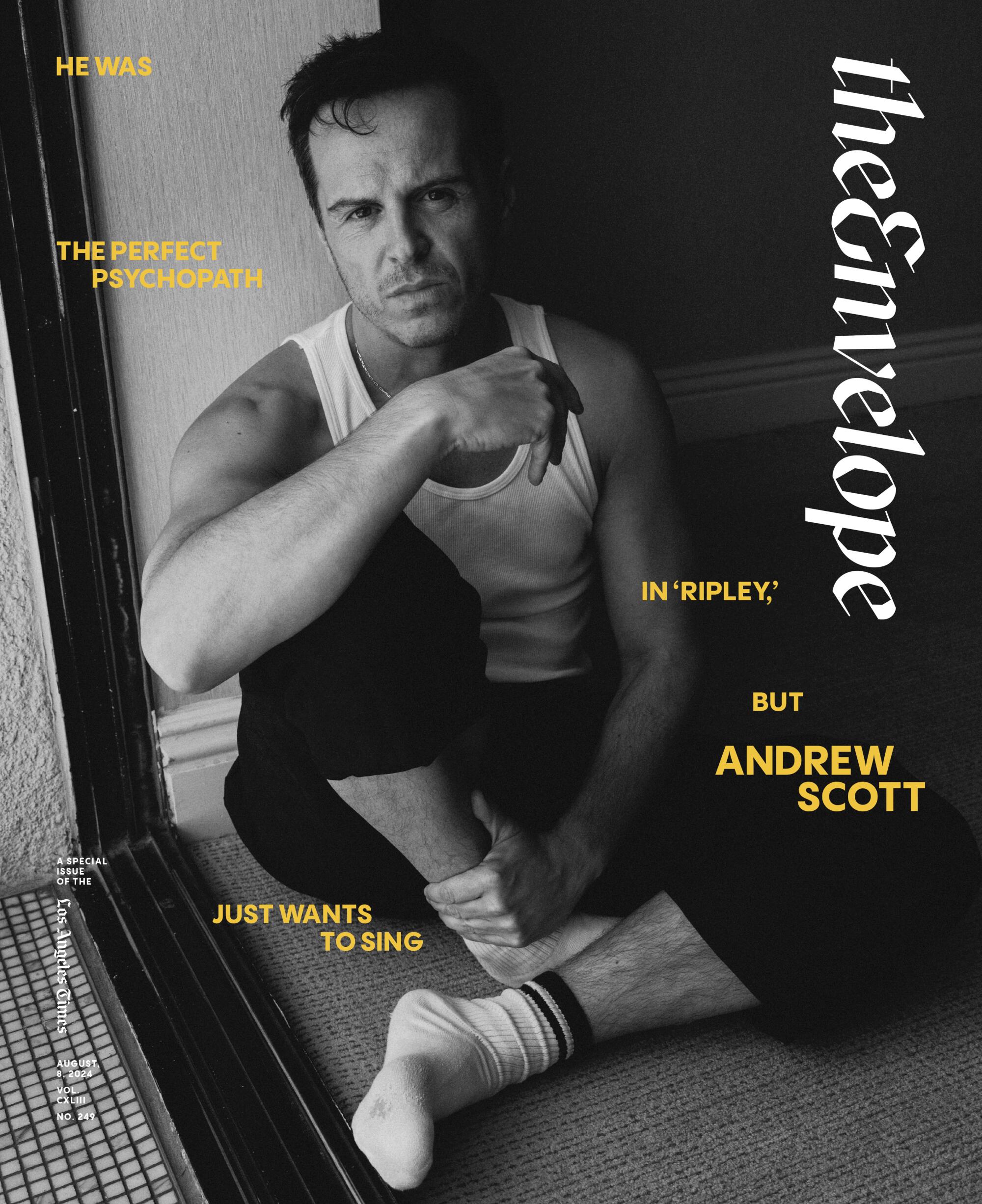
More to Read
From the Oscars to the Emmys.
Get the Envelope newsletter for exclusive awards season coverage, behind-the-scenes stories from the Envelope podcast and columnist Glenn Whipp’s must-read analysis.
You may occasionally receive promotional content from the Los Angeles Times.

